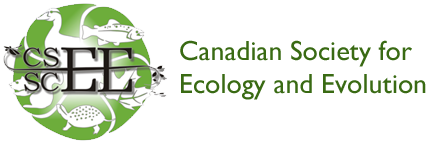FULLY FUNDED MSc (or PhD) position – Tailgate environmental DNA (eDNA) sequencing methods development in Alberta’s prairie pothole region
Ecosystems are increasingly threatened by climate change, land use, and resource extraction. Reliable, up-to-date data on species distributions, community composition, and invasive/rare species are needed for informed ecosystem management. While this is a hurdle for remote ecosystems, eDNA techniques offer a solution. eDNA is studied using water sampling or other methods to collect DNA and cells shed into the environment by the organisms that inhabit it, allowing the non-invasive detection of the species present in the ecosystem. In-field eDNA methods development will enable field crews to rapidly adjust their sampling approach without having to return to the ecosystem when the species may no longer be present – for example, to increase sampling effort or minimize further disturbance if a species at risk is detected or take action if invasive species are detected.
Objectives
We are seeking a highly motivated MSc student to develop and validate in-field “tailgate” eDNA analysis methods. This will involve using a portable lab and MinION DNA sequencer to develop protocols to detect vertebrates, macroinvertebrates, and plants through eDNA metabarcoding. Exceptional PhD applicants will also be considered.
Team
You will work with a dynamic team of researchers including Dr. Clare Venney from the University of Alberta, Drs. Jori Harrison and Brian Eaton at InnoTech Alberta, Dr. Tyler Cobb from the Alberta Biodiversity Monitoring Institute (ABMI), and Dr. Matt Dyson from Ducks Unlimited Canada (DUC), and ABMI and DUC’s summer field teams.
Desired qualifications
- BSc in Biological Sciences, Environmental Science, or a related field
- Molecular lab experience (e.g., DNA extraction, PCR)
- A strong capacity for troubleshooting and a creative mindset
- Excellent teamwork, writing, and communication skills
- Experience or interest in bioinformatics
- Enthusiasm for fieldwork and travel (funded fieldwork and accommodations with ABMI/DUC field teams, travel to InnoTech Alberta’s Vegreville lab, conferences, etc.)
Interested candidates should send a detailed cover letter explaining their interest in the project, a current CV, and unofficial transcripts to venney[at]ualberta[dot]ca no later than January 6th, 2025. Applications will be reviewed as we receive them.
The anticipated start date is between March-May 2025 to accommodate the 2025 summer field season. The salary for this position is $25,197+/year and negotiable once a MITACS scholarship is secured.
